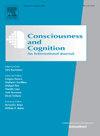利用经验抽样在实验室和日常生活中绘制认知图
IF 2
3区 心理学
Q2 PSYCHOLOGY, EXPERIMENTAL
引用次数: 0
摘要
心理学研究的目标是了解日常生活中的行为。尽管实验室研究为识别行为背后的认知机制提供了必要的控制,但这些受控情况如何推广到日常生活中的活动仍不清楚。经验抽样为实验室和现实世界的认知提供了有用的描述,目前的研究考察了多维经验抽样(mDES)产生的思维模式是如何在这两种情况下推广的。我们结合了五项已发表研究的数据,利用实验室和日常生活的数据,生成了一个共同的“思想空间”。这个空间以无偏的方式表示来自实验室和日常生活的数据,并将具有相似特征的实验室任务和日常生活活动分组(例如,日常工作与实验室中的工作记忆相似)。我们的研究建立了mDES可以在一个公共空间内从实验室和日常生活中映射认知,从而允许对认知和行为进行更生态有效的描述。本文章由计算机程序翻译,如有差异,请以英文原文为准。
Mapping cognition across lab and daily life using Experience-Sampling
The goal of psychological research is to understand behaviour in daily life. Although lab studies provide the control necessary to identify cognitive mechanisms behind behaviour, how these controlled situations generalise to activities in daily life remains unclear. Experience-sampling provides useful descriptions of cognition in the lab and real world and the current study examined how thought patterns generated by multidimensional experience-sampling (mDES) generalise across both contexts. We combined data from five published studies to generate a common ‘thought-space’ using data from the lab and daily life. This space represented data from both lab and daily life in an unbiased manner and grouped lab tasks and daily life activities with similar features (e.g., working in daily life was similar to working memory in the lab). Our study establishes mDES can map cognition from lab and daily life within a common space, allowing for more ecologically valid descriptions of cognition and behaviour.
求助全文
通过发布文献求助,成功后即可免费获取论文全文。
去求助
来源期刊

Consciousness and Cognition
PSYCHOLOGY, EXPERIMENTAL-
CiteScore
4.30
自引率
8.30%
发文量
123
期刊介绍:
Consciousness and Cognition: An International Journal provides a forum for a natural-science approach to the issues of consciousness, voluntary control, and self. The journal features empirical research (in the form of regular articles and short reports) and theoretical articles. Integrative theoretical and critical literature reviews, and tutorial reviews are also published. The journal aims to be both scientifically rigorous and open to novel contributions.
 求助内容:
求助内容: 应助结果提醒方式:
应助结果提醒方式:


